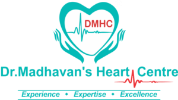Bypass Surgery
Bypass Surgery
Bypass surgery, also known as coronary artery bypass grafting (CABG), is a surgical procedure performed to restore blood flow to the heart when the coronary arteries become severely blocked or narrowed. During bypass surgery, a healthy blood vessel, often taken from the patient’s leg or chest, is used to create a new pathway for blood to bypass the blocked or damaged portion of the coronary artery. This allows the heart to receive the necessary oxygen and nutrients it needs to function properly. Bypass surgery is typically recommended for individuals with significant coronary artery disease that cannot be effectively managed with medications or other non-surgical interventions. It is a major surgical procedure that is performed under general anesthesia.
Bypass surgery is highly effective in relieving symptoms such as chest pain (angina) and improving overall heart function. It can also reduce the risk of heart attacks and potentially prolong or save lives. While the procedure carries some risks, including bleeding, infection, and complications related to anesthesia, advancements in surgical techniques and post-operative care have significantly improved the safety and success rates of bypass surgery. Post-surgery, patients will need to undergo a period of recovery and adopt lifestyle changes to maintain a healthy heart. Regular follow-up visits with the healthcare team are essential to monitor the progress and ensure optimal outcomes.
Reasons why a Bypass Surgery may work for you
Reasons to consider doing an Bypass Surgery
To improve blood flow to the heart
Bypass surgery is a highly effective option to improve blood flow to the heart when medication alone is insufficient. It is a proven approach to enhance heart health, enabling individuals to lead healthier and more active lives.
To relieve chest pain (angina) symptoms
By enhancing blood flow to the heart, bypass surgery can reduce or eliminate chest pain and prevent heart attacks by minimizing the risk of a blockage.
To prevent heart attacks
To avoid heart attacks, bypass surgery creates an alternate route for blood to flow, reducing the risk of heart attack by bypassing blocked arteries.
To reduce the risk of complications
If you are limited by chest pain, bypass surgery can help you to be more active and enjoy your life more. This can reduce the risk of complications associated with inactivity, such as obesity and diabetes.
To bypass blocked or narrowed arteries
Bypass surgery can create a new path for blood to flow around blocked or narrowed arteries, which can improve blood flow to the heart. If you have a blocked or narrowed artery, there is a risk of a heart attack. Bypass surgery can help to reduce this risk by improving blood flow to the heart.
To improve overall heart function
Bypass surgery increases blood flow to the heart. This can help to improve the heart’s ability to pump blood and oxygen throughout the body.
To increase exercise tolerance and quality of life
If you are limited by chest pain, bypass surgery can help you to be more active and enjoy your life more. This can improve your quality of life in many ways, including reducing fatigue, improving mood, and increasing independence.
To address severe coronary artery disease
If you have severe coronary artery disease, there is a high risk of a heart attack. Bypass surgery can help to reduce this risk by improving blood flow to the heart.
To restore blood supply to damaged heart tissue
Bypass surgery can restore blood flow to damaged heart tissue and it aids in reducing chest pain and improving heart function.
To enhance long-term survival rates
Bypass surgery can increase your chances of survival. This is especially true for people with severe coronary artery disease.
